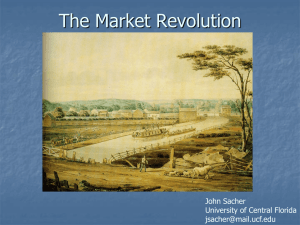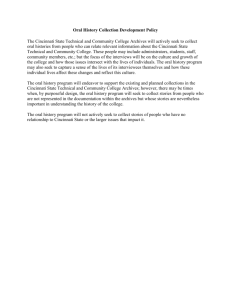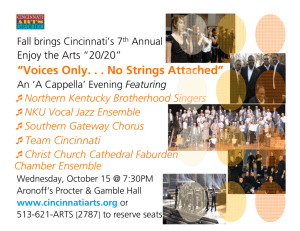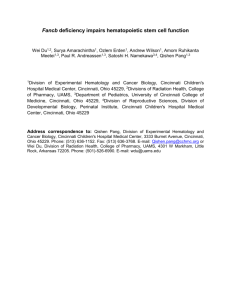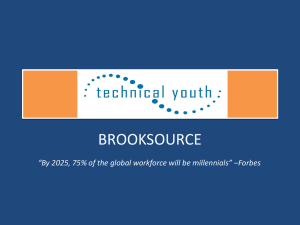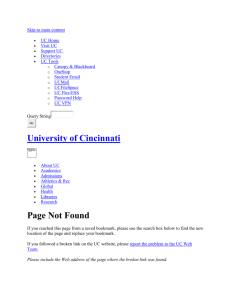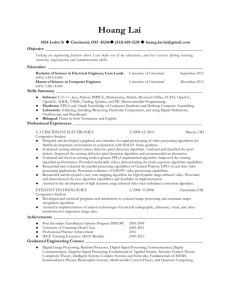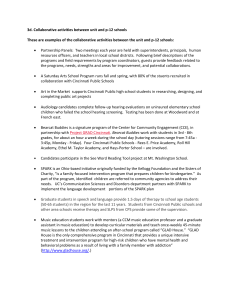Report - University of Cincinnati
advertisement
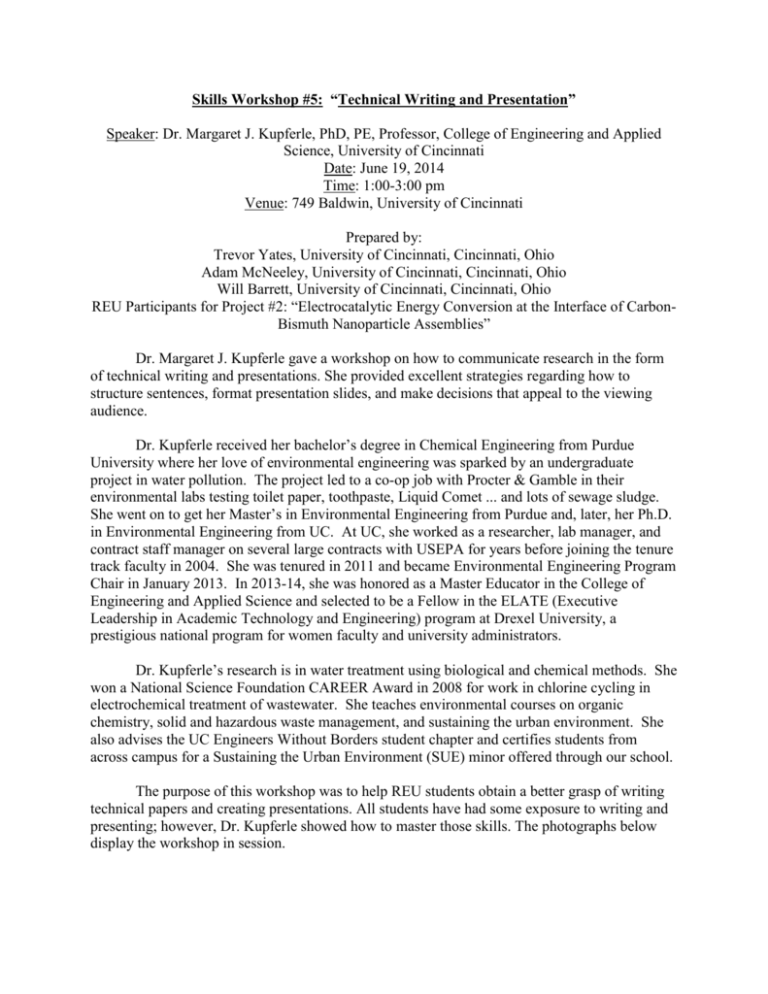
Skills Workshop #5: “Technical Writing and Presentation” Speaker: Dr. Margaret J. Kupferle, PhD, PE, Professor, College of Engineering and Applied Science, University of Cincinnati Date: June 19, 2014 Time: 1:00-3:00 pm Venue: 749 Baldwin, University of Cincinnati Prepared by: Trevor Yates, University of Cincinnati, Cincinnati, Ohio Adam McNeeley, University of Cincinnati, Cincinnati, Ohio Will Barrett, University of Cincinnati, Cincinnati, Ohio REU Participants for Project #2: “Electrocatalytic Energy Conversion at the Interface of CarbonBismuth Nanoparticle Assemblies” Dr. Margaret J. Kupferle gave a workshop on how to communicate research in the form of technical writing and presentations. She provided excellent strategies regarding how to structure sentences, format presentation slides, and make decisions that appeal to the viewing audience. Dr. Kupferle received her bachelor’s degree in Chemical Engineering from Purdue University where her love of environmental engineering was sparked by an undergraduate project in water pollution. The project led to a co-op job with Procter & Gamble in their environmental labs testing toilet paper, toothpaste, Liquid Comet ... and lots of sewage sludge. She went on to get her Master’s in Environmental Engineering from Purdue and, later, her Ph.D. in Environmental Engineering from UC. At UC, she worked as a researcher, lab manager, and contract staff manager on several large contracts with USEPA for years before joining the tenure track faculty in 2004. She was tenured in 2011 and became Environmental Engineering Program Chair in January 2013. In 2013-14, she was honored as a Master Educator in the College of Engineering and Applied Science and selected to be a Fellow in the ELATE (Executive Leadership in Academic Technology and Engineering) program at Drexel University, a prestigious national program for women faculty and university administrators. Dr. Kupferle’s research is in water treatment using biological and chemical methods. She won a National Science Foundation CAREER Award in 2008 for work in chlorine cycling in electrochemical treatment of wastewater. She teaches environmental courses on organic chemistry, solid and hazardous waste management, and sustaining the urban environment. She also advises the UC Engineers Without Borders student chapter and certifies students from across campus for a Sustaining the Urban Environment (SUE) minor offered through our school. The purpose of this workshop was to help REU students obtain a better grasp of writing technical papers and creating presentations. All students have had some exposure to writing and presenting; however, Dr. Kupferle showed how to master those skills. The photographs below display the workshop in session. Dr. Kupferle Teaching the REU Students about Technical Writing and Presentation The workshop began as an overview of research reports. She emphasized that research is part of a worldwide conversation among scientific peers. Reports, journal manuscripts, oral presentations, and posters contribute to that conversation. The next part of the overview went into the preplanning phase of the writing. The group members of a project need to be able to identify the problem and then strategize a method to solve it through the experimentation process. More time should go into the pre-writing and re-writing of papers, because everything needs to be well organized and the language has to be precise. Then Dr. Kupferle went more specifically into writing techniques. The central idea is that a writer must strive to be “short, simple, strong, and sincere.” To do that a writer must use precise language, avoid long sentences, maintain objectivity, and use active voice. The ultimate goal for a technical paper is to sound professional. As a way to convey this, she showed example sentences from scientific journal articles of what not to do. A typical sentence would be the length of a paragraph and include all sorts of unnecessary jargon. She invited student volunteers to rewrite the examples in a better way, while also maintaining all of the key information. This exercise was beneficial because it forced the class to apply the concepts in a way that will apply to future papers. There are nearly infinite ways to communicate a single idea, yet only few ways are simple and effective. The next main topic was on making high quality presentations. In order to make a good presentation, researchers must engage their audience with good visuals, simple formats, and minimal amounts of text. Good visuals convey data with graphs or processes with diagrams, and they are meant to help the audience understand the information. Sometimes it is better to show rather than tell. Visuals require the same attention to detail as the writing. It needs to look professional by conveying all of the necessary information in the simplest form possible. The format on a PowerPoint slide is important so that the audience does not get distracted from the main message. Avoid confusion by minimizing text and providing good visuals. With all of the information from this workshop, there are several takeaway lessons. Researchers must write with purpose and be able to connect with the audience. Explain complicated terms and concepts. Always write directly by keeping the subject first in a sentence. Avoid passive voice in all situations. Finally, look for ways to convey the message better, because research is more valuable when communicated properly.
